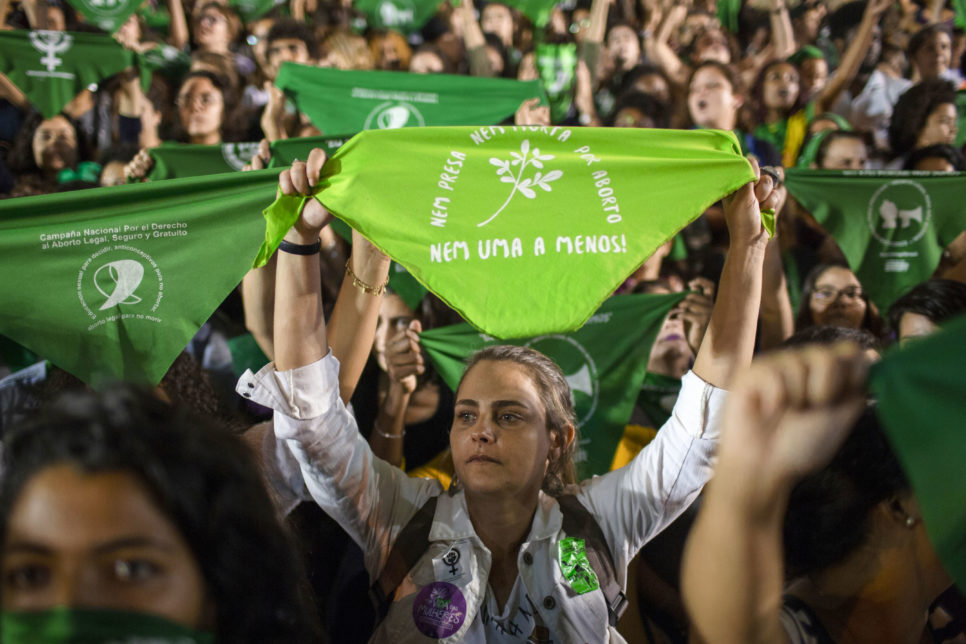In October 2004, the federal government took an important step in the struggle to eradicate slave labor in the country by publishing Ministerial Order No. 540/2004 of the Ministry of Labor and Employment. The document, called the Slave Labor Dirty List, created a public record of employers who had kept people in slave labor conditions.
The purpose of the measure was to make it difficult for individuals and organizations involved in the exploitation of workers to access credit and the market for products and services. It also imposed fines and stricter inspections for offenders for a period of two years.
Just one month after the publication of the ministerial order, the CNA (Confederation of Agriculture and Livestock of Brazil) filed a Direct Action of Unconstitutionality (ADI No. 3347) in the Supreme Court claiming that the measure violated the right of the listed employers to contest the charges and to a full defense. It also claimed that the Ministry of Labor was overstepping its jurisdiction, since it does not have the authority to legislate on the matter.
Read more
In its statement, the Attorney General’s Office said that international treaties, resolutions and conventions, as well as ordinary laws and decrees, give the ministry the legal standing to take action to combat forms of slavery.
The Office also stated that the ministerial order does not grant the Ministry new duties or new rights and obligations, but instead only establishes internal procedures. It also refuted the argument that it constituted a violation of the principles of guaranteeing due legal process and a full defense, given that the measure does not establish penalties for employers, nor does it grant the ministry the authority to judge the charges.
In its contribution as amicus curiae, Conectas defended the constitutionality of the ministerial order and its alignment with the Brazilian legal system. According to the organization, the measure expanded the means of achieving the goals of eradicating slave labor established by the National Human Rights Program, the National Plan for the Eradication of Slave Labor and the international conventions on the matter ratified by Brazil.
The organization said there was no violation of any constitutional guarantees, since the Constitution of 1988 itself determines that the Brazilian State can take legal and administrative measures to prevent violations of people’s dignity.
“The principle of human dignity, as a higher mandate imposed by our Constitution, determines that the Brazilian State must take all the legal and administrative measures at its disposal to prevent violations of people’s dignity,” reads an excerpt of the document submitted by Conectas.
The organization went on to say that the Dirty List reaches the heart of the problem by making the exploitation of slave labor economically unfeasible, through the imposition of heavy costs. “The ministerial order in question represents a response to our society’s desire for the resolution of the shameful problem that is slavery. It is an important tool for the protection of Brazilian workers since it directly affects exploiters by establishing measures to make this activity economically unviable.”
Finally, the organization also rejected the central argument of the petitioners by stating that administrative measures such as the Dirty List are supported by the right to a full defense and that any violation of the Constitution can be challenged in the Judiciary.
In 2011, the federal government published a new ministerial order with similar content, which meant that, in 2012, ADI-3347 was dismissed by the rapporteur of the case, Justice Ayres Britto, without a judgment on the merits.
In subsequent years, the Dirty List would again be challenged several times in the Supreme Court and in other bodies of the justice system, such as the Superior Labor Court. In 2020, as part of an ADPF (Allegation of Violation of a Fundamental Precept) Case, the Supreme Court ruled that the measure was constitutional.
Technical information:
Case: ADI-3714
Court: Supreme Court
Status: Dismissed by the rapporteur Ayres Britto without a judgment on the merits.
Procedure:
- 10/15/04 – Ministerial Order No. 540/2004 issued by the Ministry of Labor that created the Labor Slave Dirty List.
- 11/16/04 – Initial petition of ADI-3347.
- 5/12/11 – Inter-Ministerial Order No. 2/2011, with similar content, issued by the Ministry of Labor and the Human Rights Secretariat.
- 1/15/15 – Request for Conectas to be admitted as amicus curiae.
- 4/3/12 – Decision of Justice Ayres Britto to dismiss ADI-3347.
- 12/22/14 – New case (ADI-5209) calls for suspension of the Dirty List.
- 12/27/14 – Justice Ricardo Lewandowski issues on his own an injunction suspending the disclosure of the Dirty List.
- 3/31/15 – Government publishes a new Inter-Ministerial Order (No. 2/2015) clarifying the administrative process for the inclusion of new names on the Dirty List.
- 5/11/16 – Government publishes a new Inter-Ministerial Order (No. 4/2016) adding to the measure the possibility of signing Conduct Adjustment Agreements and court settlements for a period of up to two years before the inclusion of new names on the list.
- 5/20/16 – Justice Cármen Lúcia, the new president of the Supreme Court, rules on her own that all the cases related to the Dirty List be terminated and recognizes the constitutionality of Ministerial Order No. 4/2016.
- 3/14/17 – Superior Labor Court rules in favor of the publication of the Dirty List.
- 3/23/17 – After an interval of more than two years, the federal government once again publishes the Dirty List.
- 10/16/17 – Federal government issues a new Ministerial Order (No. 1129/2017) relaxing the rules for inspection and weakening the concept of contemporary slave labor – the document he was called the “Ministerial Order on Slave Labor”.
- 10/24/17 – Supreme Court temporarily suspends Ministerial Order No. 1129/2017.
- 12/27/17 – Federal government publishes Ministerial Order No. 1293/2017, once again altering the concept of slave labor. The document establishes the criteria that apply to this day.
- 9/14/20 – In a judgment on the merits of ADPF-509, the Supreme Court ruled that the Dirty List should be maintained.







